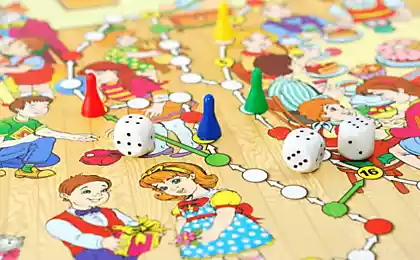157
Why being too polite can ruin a relationship

The Boundaries of Courtesy: Where Does the Line Go?
Politeness is a basic quality that allows people to coexist comfortably and effectively.
interact. However, when politeness crosses the boundaries of reasonableness, it can become a problem.
destroying relationships and leaving behind misunderstandings and resentments.
But where is the line between healthy courtesy and excessive courtesy? Why is there an excessive courtesy that seems to
Do you need to strengthen ties, sometimes causing them to break down?
Excessive politeness: a mask that hides the truth
One of the main problems of excessive courtesy is its ability to mask real feelings.
opinions. When a person constantly tries to avoid conflict, he sacrifices sincerity and creates a false identity.
atmosphere in relationships.
- Passive aggression: Suppressing their discontent for the sake of politeness, people often show
passive aggression – sarcasm, coldness or avoidance of communication. - Accumulation of grievances: Unexpressed emotions accumulate and can result in a devastating conflict.
- Loss of trust: When others realize that a person is hiding their thoughts, it undermines
trust in him.
How excessive courtesy breaks down personal boundaries
Being polite does not mean agreeing to everything. However, many people are afraid to refuse others, believing that this is the case.
It will be perceived as rude. This is especially true in personal and professional relationships where it is important.
To be able to defend your borders.
- Giving up your own needs: The constant desire to please others leads to neglect.
It creates internal conflict and dissatisfaction. - Overloading responsibilities: People who don’t know how to say “no” often do.
Overloaded with other people's tasks, which leads to burnout. - Inequal relations: When one side continually gives in, the relationship loses its balance.
They become toxic.
Politeness as Avoidance of Conflict
Excessive courtesy is often used as a way to avoid conflict. However, avoiding problems
It does not solve them, but only aggravates them. Hidden misunderstandings accumulate, turning into a "time bomb"
“action”.
- Surface communication: When important topics are avoided, communication becomes formal.
It loses its emotional depth. - Decreased respect: Persistent concessions are perceived as a weakness, which can reduce
respect from others. - Underestimating yourself: Avoiding conflict creates a sense of helplessness and
It reduces self-confidence.
How do you get the balance back?
Politeness remains an important quality, but it must be used wisely. To avoid negative consequences,
It is important to learn to be courteous, but at the same time to maintain sincerity and protect your interests.
- Speak honestly: Express your thoughts and feelings, even if they may be unpleasant.
Sincerity builds trust. - Set boundaries: Learn to refuse in situations that don’t fit yours.
interests, and do so respectfully. - Practice constructive communication: Solve conflicts through open dialogue, not
through avoidance. - Assess your motives: Ask yourself, “Do I really want to do this or just do it?”
Afraid to say no? ?
Conclusion: politeness without losing yourself
Politeness is an art that helps people find common ground. However, excessive courtesy may
They lose their identity and become hostage to others’ expectations. To avoid
It is important to find a balance between respect for others and respect for yourself.
Learn to be polite, but don’t forget your boundaries and needs. Because real relationships are built.
It is based on sincerity, trust and mutual respect, not on attempts to avoid any conflicts.
How Datsuzoku Philosophy Can Help Remove Monotony and Look at Life Creatively
3 rules to follow when discussing controversial topics























